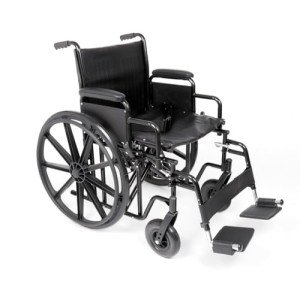Bariatric Folding Wheelchair
Bariatric folding wheelchairs are designed to accommodate users of a larger size. They include a higher weight capacity than basic models and are built with strengthened products for added stability and durability.
Nevertheless, not everyone with a high body mass index (BMI) needs a bariatric chair as lots of fall within the safe weight limits of basic wheelchairs.
Size and Weight Capacity
Bariatric wheelchairs have broader seats and are created to accommodate bigger individuals, generally weighing as much as 500 pounds. These chairs have a heavy-duty frame made from enhanced materials like steel and are developed with bigger wheels that supply more weight circulation and maneuverability for bigger users.
When comparing bariatric wheelchairs, ensure the weight capacity is listed as fixed or active load. Fixed weight capacity refers to how much a chair can hold when it's sitting still, while active load capacity is determined by putting the chair through a drop test that replicates someone plopping down into the seat.
Basic wheelchairs are commonly produced and designed for users with typical body weights, making them more budget-friendly than bariatric models. Medicare and other insurance coverages may only cover a limited variety of bariatric wheelchairs, depending on a patient's medical requirements and diagnosis. These chairs are likewise more expensive than standard wheelchairs due to the fact that they have a specialized style and building. Nevertheless, they are an excellent solution for clients with a wide variety of medical conditions that require a more comfy travel experience.
Seat Dimensions and Comfort
Unlike basic wheelchairs, bariatric designs have wider seats to accommodate bigger people. They likewise have more robust frames and big, durable wheels that can stand up to higher loads. They can be personalized with numerous seating alternatives and accessories based on the user's needs and preferences.

When comparing wheelchairs, it's important to look at their weight capabilities under both fixed and active load scores. Fixed load describes the chair's maximum capacity when it's sitting still, while active load measures how much a wheelchair can securely hold when somebody sits in it and moves around. Some producers might also display the weight limit of a bariatric wheelchair in kilograms, which is often more precise since it takes into account the average bodyweight of a person who utilizes the chair.
In addition to a broad seat, a bariatric folding wheelchair ought to have adjustable cushioned leg rests to help users stay comfy while taking a trip. It ought to likewise have turn up armrests that can be moved out of the method to prevent getting in the user's method when they wish to stand or move to another surface.
If you're thinking about a bariatric wheelchair, ask a health care supplier or mobility professional for recommendations. They can assess your needs, suggest the ideal chairs for you, and guide you through the procedure of buying one. They can also help you compare features and rates to discover a wheelchair that best fits your budget plan. bariatric heavy duty transport wheelchair can even provide recommendations on other mobility options such as power positioning systems and iLevel seating.
Weight and Portability
While basic wheelchairs are normally budget-friendly, bariatric chairs tend to be a bit more expensive. This is due to their specialized style and building and construction, along with the truth that they're a little heavier than their equivalents.
If you're worried about the expense of a bariatric chair, talk with a doctor or mobility expert. They'll be able to assess your special needs and identify which type of wheelchair is the best suitable for you. They can also suggest wheelchair devices based upon your specific requirements. Additionally, if you're seeking to get your wheelchair covered by insurance coverage, such as Medi-Cal, they can assist you on the steps involved in this procedure. For more details, read our guide to wheelchair insurance coverage. Then, you can start your journey towards independent mobility.
Manoeuvrability and Handling
Picking the ideal wheelchair can be a crucial decision for those with restricted mobility. Bariatric wheelchairs provide increased weight capacities and are created to accommodate bigger individuals. They generally feature bigger wheels, broader armrests and seating alternatives, and are tougher than standard wheelchairs.
When selecting a bariatric wheelchair, think about the person's particular needs and the environment in which they will be using it. Evaluate the weight capacity and seat measurements, and try to find adjustable features like cushioned raising leg rests to support convenience and ease of transfer.
Figure out whether the wheelchair is suitable for manual or powered usage. For added versatility, a bariatric folding wheelchair can be quickly folded and compressed for storage or transport. This makes them an ideal choice for those with restricted home space or who require to travel long distances. The wheelchairs likewise feature leak proof wheels to guarantee durability and low maintenance. Suitable for users up to an optimum of 35 stone.
